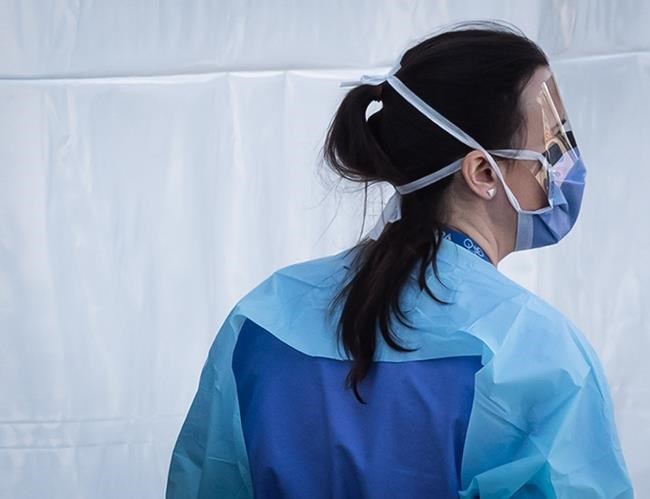A group that represents the funeral industry is calling for greater access to masks and other protective gear as the COVID-19 pandemic marches onward, saying embalmers in particular put themselves at risk in the course of their work.
Bereavement workers aren't given priority in accessing surgical masks, gloves or other personal protective equipment in short supply due to the spread of the novel coronavirus, said Allan Cole, vice-president of the Funeral Service Association of Canada.
"We are in need of personal protective equipment every bit as much as some front-line health-care professionals," Cole said. "Our membership is challenged with the reality of this tragedy that results in remains that have died of COVID-19."
He said this is particularly dangerous for embalmers, who worry they're at risk of catching the virus from the remains of the infected.
Federal Procurement Minister Anita Anand announced Friday that the government had purchased 11 million N95 respirator masks, in addition to more gloves, wipes and other supplies.
Delivery is set to begin immediately, but it wasn't immediately clear whether embalmers and other bereavement workers would make the list of recipients.
"Most protective equipment is being diverted to the health-care system, and rightly so — they're trying to look after people that are alive," said Carey Smith, CEO and registrar of the Bereavement Authority of Ontario, the regulatory body for the field in that province.
But he said he's already hearing that embalmers don't have access to the equipment they need.
"They don't enjoy any special status right now, and that's part of the challenge," Smith said. "They're in line just like everybody else waiting to get protective equipment."
Thus far, there have been 12 deaths linked to COVID-19 across Canada — mostly in British Columbia — and upwards of 920 diagnoses.
"There is no known risk associated with being in the same room as a COVID-19 deceased, but of course, embalmers doing preparation activities have risks associated with that, and they have to take measures to protect themselves," Smith said.
He said there are a few different ways embalmers are at risk. One is with aspirating the lungs of the deceased, which involves puncturing them and potentially exposing oneself to the virus within.
But Smith said the lungs are not the only concern. Equally worrying is the droplets that spread the disease even among the living.
"Those droplets can stay alive on surfaces for some time," Smith said.
He said that for now, the BAO is making some specific recommendations to funeral directors.
"We're telling them to be really sure that the people that are using them are actually the ones that need them," Smith said. "There's no doubt you need them during an embalming procedure, but perhaps transportation or in a crematorium setting or by the graveside, you don't really need them."
And of course, there is also the risk of transmitting the virus at funerals among mourners. Both the FSAC and the BAO are recommending funerals be kept to 50 people or less, perhaps with a larger memorial or celebration of life to be held later.
There are also livestreaming options available.
This report by The Canadian Press was first published March 20, 2020.
Nicole Thompson, The Canadian Press




